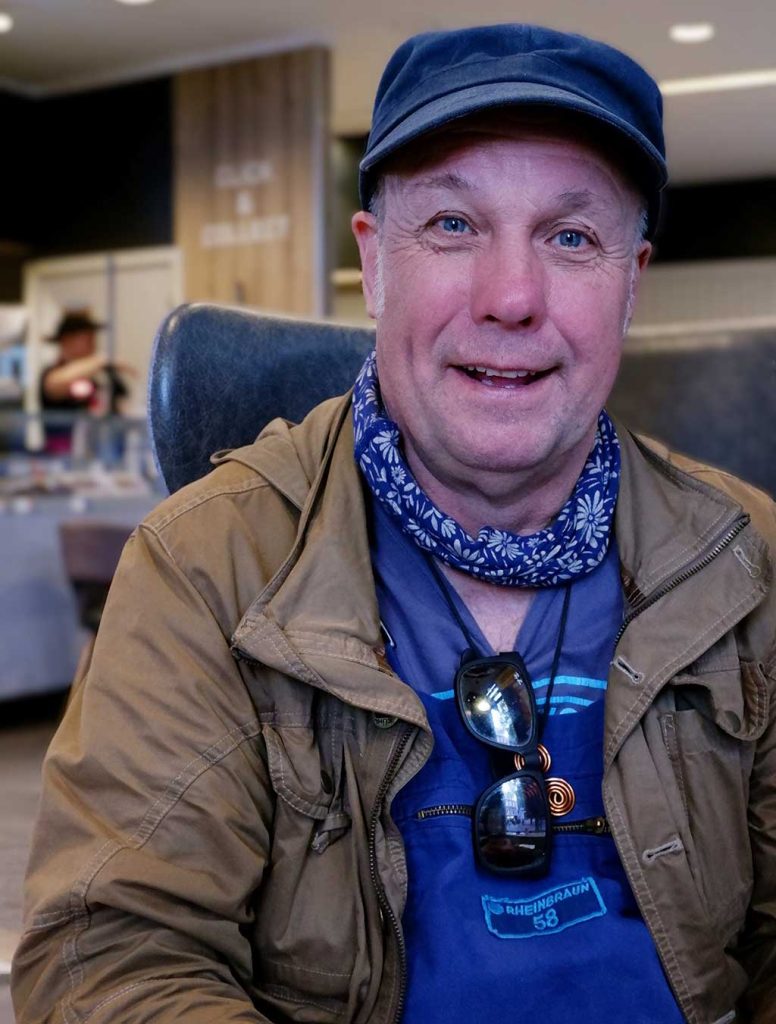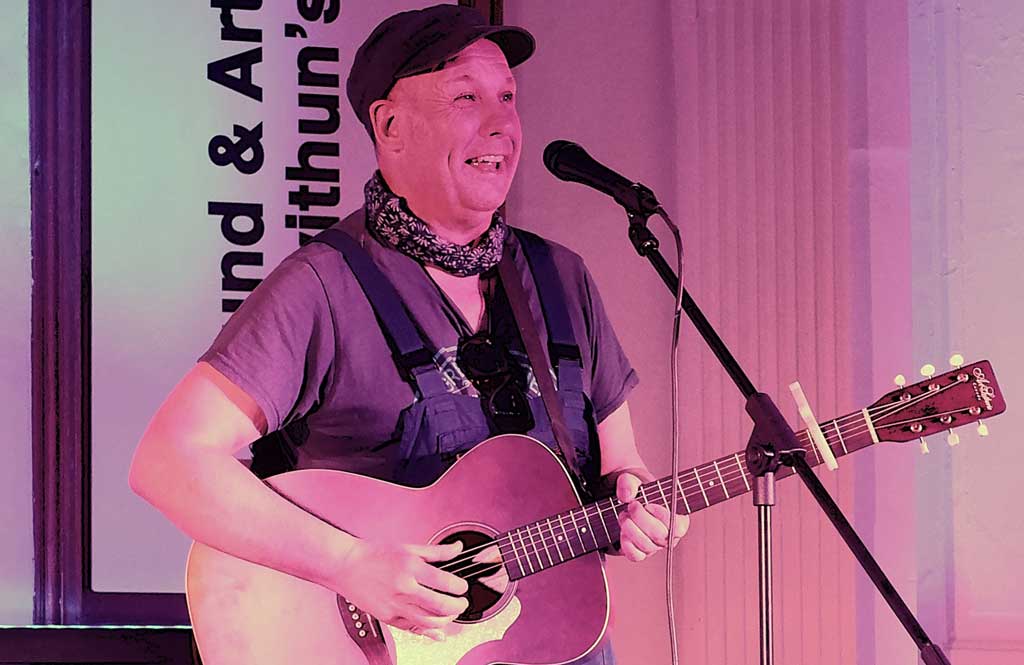Gladsome, Humble and True
An interview with Martin Stephenson
9th May 2025
I first heard Trouble Town by Martin Stephenson and the Daintees in a damp and moldy student bedroom in Liverpool c1984. Stephensons voice lulled me into his intricate words and played with my imagination. He built stories, visual stories, that pulled at emotions I had yet to identify, elevated and crushed me equally with Trouble Town and Crocodile Crier. The youthful me analysed lyrics and yearned to read deeper into the images and sentiments he created.

While a part of me loved the tenderness of his observations, I felt exposed by the ability his music had to reveal my emotions so effortlessly. I loved his work, played his Newcastle ballads plaintively and repeatedly against the angst of a heavy metal backdrop that my brothers pumped through their speakers. At a time of post punk, Poll Tax Riots, Race Riots, miners strikes and the Falklands War, his gentle tunes and irrepressible smiles created a sense of hope and spirituality in the midst of 80’s rage, not in a religious kind but a deeper, kinder kind. In small sticky floored university halls, Martin Stephenson and a small group of Kitchenware crooners, offered what the harshest critics described as ‘twee’ but the disconcerning recognised as intelligent song, with the almost forgotten joy of blatant sensitivity shared more commonly in faded poetry books by romantics.
In April 1989, Time Square in New York, I saw Martin Stephenson and Hothouse Flowers play for the umpteenth time, but it was a gig that will forever be etched on me, like a weathered carving on a favourite bench. They provided a welcome familiarity, a reminder of home, yet somehow I forgot about that bench, that is, until this evening, 36 years later, as I have the honour of sharing a decaf coffee with Martin Stephenson, reminiscing on life, loves, music and creativity.
Stephenson is a master of fusion, a magpie who manages to blend a range of influences while keeping coherent and well constructed songs. If you look online you can see genres listed as rock, folk, world, country, acoustic, indie rock pop, pop rock, alternative country, skiffle, blues, roots. Suffering with imposter syndrome, (probably the result of having been catapulted from busking on street corners to signing to Kitchenware at such a tender age), in post punk ‘79, ‘when the students started playing properly’, Stephenson went about learning music ‘so I went from indigeny to actually learning how to do it, in about 78/79 I bought a load of books to kind of teach myself about music, Spanish and Blues, but I need small menus, I don’t need too much stuff or it puts me to sleep, so I’d get to about exercise 4 and then I’d give up and put the kettle on, it was the journey to the kettle that I would get the song.’
Discussing the creative process he describes himself ‘I’m a Jack of all and master of none, but I’d never want to be a master, I kind of like being a Geordie” he laughs.
Over the decades has your approach to writing changed? It evolves, I’m always like a beginner, I like working with people who want to do things, cause they realise I’m not really sure what I’m doing, and I kind of like not knowing, so I follow guidance, crown chakras, we all have expanded consciousness.’
It’s not all been an easy ride but it’s good to see that he has survived the often brutal commercial environment that artists have to navigate. Reflecting on the way the Kitchenware label evolved and grew beyond the family environment that Stephenson was comfortable in, he decided ‘This is not for me, I’m on a spiritual path I don’t want to be famous, I have respect for what I do but I don’t want to be an icon.’
Listening now to Trouble Town lyrics you can see how his self awareness was with him even back then, it’s perhaps no surprise that he now lives a quiet, humble existence with his partner Anna in the Scottish Highlands ‘It’s so quiet there, that I don’t have to talk to anyone’.
Yet Martin Stephenson is a wonderful communicator and a generous conversationalist, humble, honest and never far from a humorous story.
He speaks with love and deep respect for his collaborative partners and peers, sharing insights into why he admires them, be it the snooker playing skills of Neil Conti of Prefab Sprout that hammered their manager, the value of long term friendships with those he admires, like the reclusive genius Virginia Astley, and the honourable and caring nature of Liam O Maonlai from Hothouse Flowers and the skills of Roddy Frame; to me these names were all great influences on my life’s soundtrack, it’s refreshing to hear that their image was a true reflection of their reality.
Regarding ownership of creativity Stephenson considers himself more of a channel, like a typewriter, I’m more Miss Moneypenny than James Bond ‘It’s more a service to expanded consciousness’.
‘That’s why if you are truly free from the publishers and the ownership of things you see It belongs to everyone…. If the song has touched someone it’s their song…’
His ability to condense and reflect with enlightenment is admirable and almost an hour of chatting gifted so many wisdoms you can fully appreciate why Billy Connolly may knock on his door requesting a rendition of Rain and then stay all afternoon chatting when he share gems like:
‘Creativity is timeless, you can never measure it…. it’s like an old friend’
‘I’ve learnt a lot from being a child of song, not a master of song, a child.’
I asked if there was one message he would like the audience to take away from his gig what would it be? ‘Love, yeah love, just be kind, I am aware of what the higher currencies are now, trust….I just hope we all collectively wake up.’
Find out about Martin Stephenson’s music and buy his latest Roots in Cahoots at : Music | Martin Stephenson
Also check out our recent review of Martin Stephenson at St Swithun’s, Worcester.
By: Juliet Mootz








